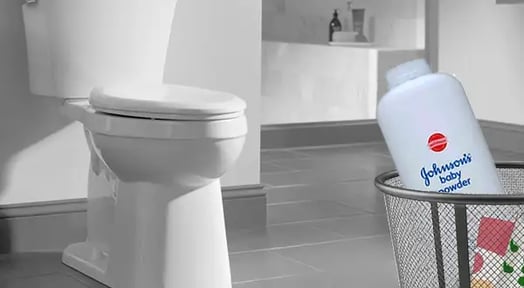A Missouri court ordered Johnson & Johnson to pay $4.69B in damages to 22 women who accused the company’s baby powder of giving them ovarian cancer.

Johnson & Johnson, which plans to appeal the court’s decision, finds itself in the middle of multi-decade debate on the medical impact of talc thanks to its past marketing campaigns that encouraged the use of powder for feminine hygiene.
This isn’t the first complaint — more like the 9,000th
The 22 women in this case are among 9k plaintiffs who claim that asbestos in Johnson & Johnson’s talc-based products has caused ovarian cancer and other medical problems. In its natural form, talc contains asbestos, a chemical known to cause cancer when inhaled.
But, asbestos-free talc has been used in commercial products since the 1970s, and the National Cancer Institute does not believe that talc causes cancer.
Scientific debate continues, and so will the lawsuit
Johnson & Johnson’s first talc trial, in 2013, resulted in a finding of negligence (but no damages were awarded). Since then, the medical community has continued to disagree on the dangers of talc.
Now, J&J will “pursue all available appellate remedies” to get the recent ruling overturned. Given the disagreement within the medical community, it has a good chance of winning its appeal — it has successfully appealed numerous talc cases in the past.
Sweeping the powder under the rug
Regardless of how the case ends, J&J’s denial of wrongdoing sounds familiar: A big brand denies health risks and then sweeps old, unproven marketing under the rug when science finally calls BS.
J&J stock fell 1.4% after the recent verdict. But until talc is officially deposed, J&J will continue to defend itself, claiming its “products do not contain asbestos and do not cause ovarian cancer.”
